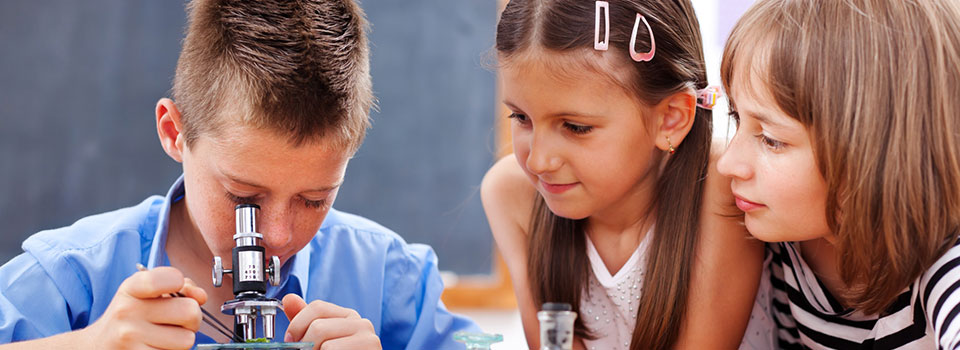Ask a room of third-graders what they want to be when they grow up and chances are you’ll get plenty of answers that have to do with science-paleontologists, oceanographers, doctors, astronauts.
Visit with those same children five years later, and their priorities have likely shifted.
“Children are almost all-by nature-really curious, and they love to explore, which are great characteristics when you’re a scientist,” said David Knauft, a University of Georgia horticulture professor. “Everybody wants to be a scientist in second grade, but when you get to ninth grade no one wants to be a scientist.”
Knauft wanted to change that, so a decade ago he and a team of 10 UGA College of Agricultural and Environmental Sciences students went into the local school system with a mission to introduce young students to science in a new way.
The program, called Project FOCUS (Fostering our Community’s Understanding of Science), started as a way to introduce children to the field of science. Ten years later, it has morphed into a program that provides relied-on support for teachers who want to do more hands-on science in the classroom and has touched the lives of thousands of grade-schoolers.
Project FOCUS began in 2002, inspired by Cheryl Jones, a research technician at Emory University whose children attended Barnett Shoals Elementary School in Athens.
“She came to my office and wanted to explore how UGA could partner with her sons’ elementary school to help the teachers as they taught science,” Knauft said. The two of them developed Project FOCUS with Ray Clark, principal of Barnett Shoals Elementary School, and several of the teachers there.
Knauft recruited UGA science majors who had experience working with children. He helped vet them before they went into the classroom and gave them course credit for the hours they spent teaching-making it one of UGA’s first service-learning courses.
Since its inception, Project FOCUS has paired more than 1,000 UGA students with local teachers in Clarke County classrooms.
Paula Valetta Bugg, a biological science major from Decatur, Ga., took the course last year because enrichment programs like Project FOCUS kept her interested in science even after her friends had stopped thinking it was cool.
She wants to be a physician and can trace her drive to study medicine to one particular memory: dissecting an eyeball at “brain camp” when she was in middle school.
Teaching kids about taxonomy by helping them categorize a classroom full of shoes or building cell models out of bread, peanut butter and grapes can be a good break from the decidedly un-silly world of science, she said.
Knauft works with school system administrators to make sure the students work in complete collaboration with their host teachers. He stresses the importance of being prepared for each lesson, arriving on time, working with the teachers to develop their lesson plans and following the curriculum.
Students are challenged to come up with projects that are both educational and fun.
“The most challenging thing was learning how to present a certain concept or topic in several different ways because every child learns differently,” said Hillary Thornton, an avian biology student from Charlton County, who taught a fifth-grade science course at Winterville Elementary in fall 2012.
So far, administrators and teachers have been pleased with the results the young “teachers” are having in their classrooms.
“The program has increased enthusiasm for science amongst our student body, which is exciting to see,” said Jerry Stapleton, assistant principal at Winterville Elementary. “The students love the hands-on science activities.”


